LOCAL SEO
What is SEO Search Engine Optimization | How SEO Works
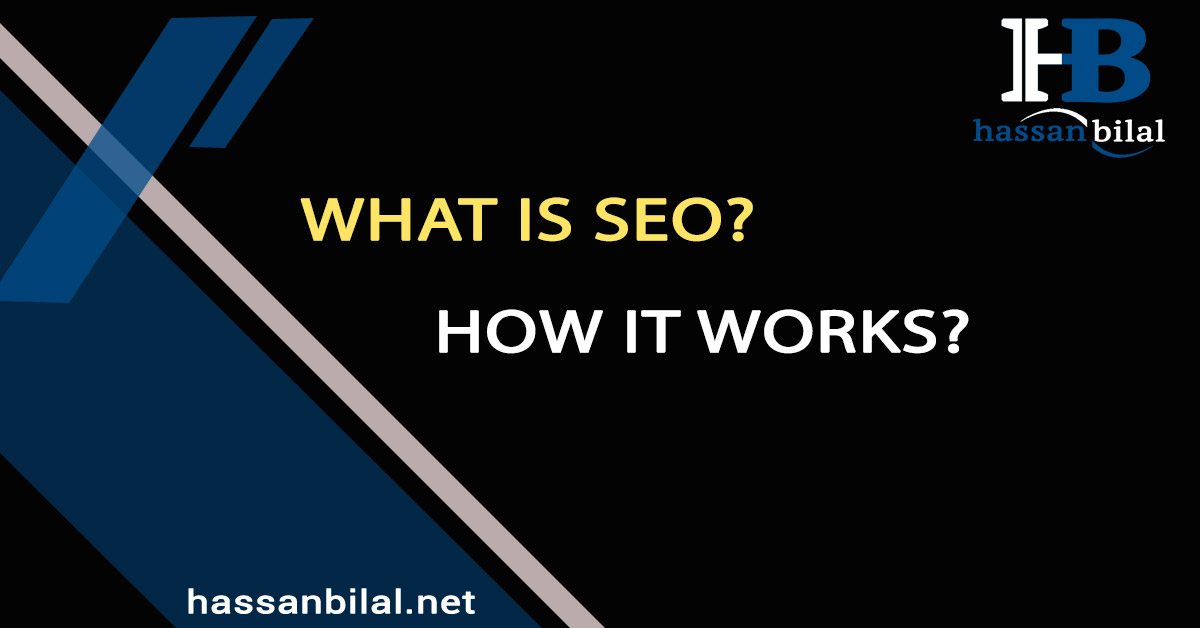
First of all : You don’t learn optimization for search engines in five minutes, and our guide is accordingly extensive. You will see that search engine optimization has nothing to do with magic. It’s about analyzing data, deriving an SEO strategy and implementing this strategy in the form of different SEO measures , divided into on- page and off-page optimization .
No, I don’t mean to say that search engine optimization is trivial. Google makes the game more complex and laborious every year. Rather, my aim is to make it clear that good results are not a coincidence and that investing in search engine optimization is not just speculation .
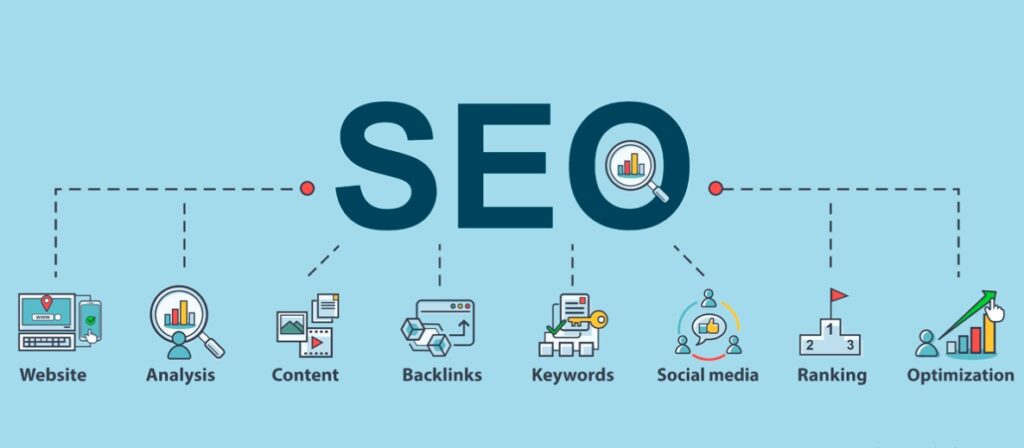
What is SEO
Definition and meaning of search engine optimization
Understand search engine optimization
SEO ( Search Engine Optimization ) is nothing more than search engine optimization Simple optimizing according to Google Rules and Optimization for readers. Strictly speaking, it should be called “Optimization for Search Engines”, because that is the purpose behind the work. If you do it right, SEO measures will result in your page appearing in organic search results. Search Engine Results Pages (SERP) , is displayed as close to the front as possible.
Search Engine Optimization is divided as subpart of search engine marketing . Optimization can target different types of search engines, including image search (e.g. Google Images), video search (e.g. Google Video), news search (e.g. Google News), or vertical search engines (e.g. Booking.com).
And yes, theoretically you can also use this optimization for other search engines, such as Bing, Yahoo! and DuckDuckGo – we’re only talking about Google here , as this search engine is by far the most important with a market share of 80 percent worldwide.
Incidentally, Google is not the top dog everywhere:
- China (Baidu)
- Japan (Yahoo! Japan)
- South Korea (Naver)
- Russia (Yandex)
- Czech Republic (Seznam)
How does search engine optimization work?
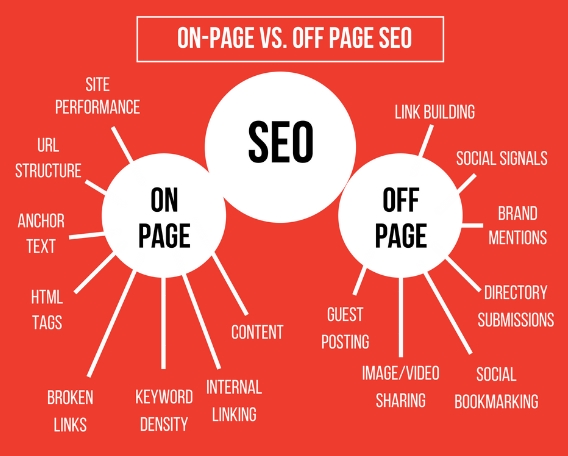
So-called keywords, which users search for via search engines, are central to optimization for search engines. As a company, it is essential that your website is found on the first page of search results for the keywords that match your offer.
Expert Tip: You can check for each keyword how high the demand or the search volume is. If you run Google Ads for a keyword at the same time, you even know how high the conversion rate is.
Search engine optimization consists of a series of measures on and off the website so that it is listed as high up as possible in the organic Google search results for a specific search term . And here is a little more technical jargon:
On Page optimization : Measures on your website,e.g.improvement of your meta elements , keyword or entity optimization of content on a landing page , responsive design , etc.
Off Page Optimization : Measures outside of your site, e.g. collecting backlinks and mentions
Keywords : search terms
Backlinks : A back link is a link that leads from one website to another website.
Organic Search Results (Natural Listings) : natural and non-paid organic search results
Search engine ranking: ranking of search results
One note: don’t expect your page to jump to # 1 right away. It takes a lot of work, know-how and patience to get there . With search engines, you have to earn visibility, so to speak.
At the same time, I have to say that SEO optimization is actually not about earned media . SEO is a process designed to help your media perform better. You can “earn” organic traffic through the optimization that you or your SEO agency have carried out . This makes organic traffic a form of earned media, even if the content on your website is owned media itself .
How is Google’s search engine ranking determined?
One thing I want to say wants one thing above all: offer users the results they are looking for as quickly as possible and thus satisfy them . Because then they keep coming back to that search engine so that Google can keep making money by selling ads. So much for the simplified explanation.
Basically, the internet is nothing more than a huge, huge library. So how does Google decide which works will appear in the top 10? Quite simply (at least on the surface): The factors relevance and authority are particularly weighted . The Google algorithm is based on these factors, among others, when it evaluates a page:
- Content, onpage SEO (relevance to the search query, quality and expertise)
- References Backlinks, from other websites to the page ( domain popularity and link popularity are important SEO ranking factors as they reflect the authority; Google uses the PageRank as a metric )
- Website Speed and Good User Experience
- . Shortclick , also called pogo sticking (user satisfaction)
- HTTPS , Mobile Friendly , Safe Browsing , Core Web Vitals (Page Experience)
In other words, if you want a page to rank for a specific keyword, that page has to deliver what is being searched for (also called search intent ). Can you still manage to build up a certain level of authority through backlinks and a satisfactory user experience? User experience, you have very good chances of ranking.
And which SEO areas should you have in mind in 2021 in order to meet Google’s requirements and increase your chances of ranking ?
Search engine registration
In the past, inclusion in the index of various search engines was done by submitting the URL of the relevant page. The respective search engines then sent a web crawler to analyze the page and, if necessary, to index it.
Nowadays, a search engine submission is no longer necessary. Search engines like Google, Bing, and Yahoo! also find new websites within a very short time. Nevertheless, it is advisable to register a new website with tools such as the Google Search Console or Bing Webmaster Tools . They provide reports and functions to improve your visibility, inform you about problems and allow you to see your website from the point of view of a search engine.
Google’s quality guidelines and rules for SEO
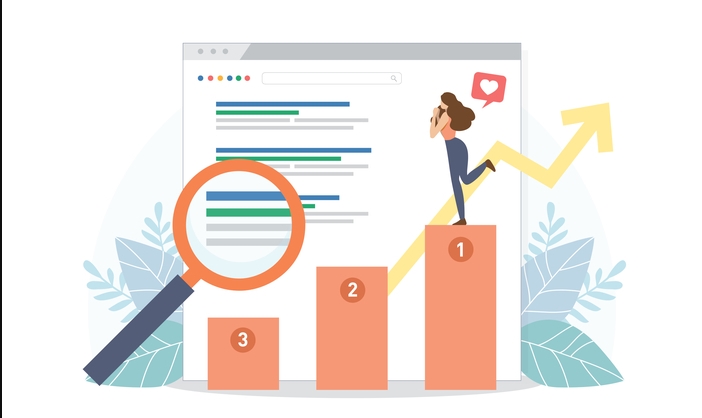
Google has general guidelines for webmasters that (if you follow them) will make your website easier to find (crawl), indexed (indexing) and ranked. In addition, the so-called quality guidelines describe unauthorized SEO measures, also called search engine spamming.
Search engine spamming describes all methods to manipulate search engine rankings. If you employ these types of SEO measures, there is a risk that your visibility in the search results is permanently reduced or your visibility .
In the worst case, your website will be completely banned from the Google index. In principle, it is (almost) always possible to reverse the Google penalties by removing the reason for the penalty and submitting a request for a re-examination . Reconsideration request in the Google Search Console .
Expert Tip:
A re-examination request only needs to be made if it is a manual penalty. In such a case, you will receive a notification in the Google Search Console. In the case of an algorithmic penalty, the request for a re-examination is not necessary. In both cases, the reason for the Google penalty must be resolved.
Optimization using undesired methods on the part of search engines is often referred to as Black Hat SEO (Black Hat Search Engine Optimization). The opposite is White Hat SEO (White Hat Search Engine Optimization).
Examples of unauthorized link building practices, also known as link spamming:
- Link farms eg building a private blog network. Private Blog Network (PBN) using expired domains
- Link purchase, also in the form of sponsoring and remuneration with products
- Automated link building via blog comments, forum profiles, etc.
- Participation in link exchange programs (individual link exchange is usually not a problem)
- Participation in guest article networks (individual inquiries are definitely allowed)
Examples of Unauthorized OnPage SEO Practices:
- Hidden text
- Hidden links
- Keyword stuffing
- Bridging sides
- Automatically generated content
- Creating a large number of thin content pages
- Copied content ( duplicate content )
- Abuse of rich snippet markup
Examples of other illicit practices:
- Participation in affiliate programs without sufficient added value
- Misleading redirects
- Cloaking
What is a search engine optimizer or SEO manager?
Good search engine optimization can do a lot – but it also requires a lot of commitment and expertise. This is exactly what SEO managers are for. Anyone who works in this branch of online marketing has an eye on all aspects of SEO and does, so to speak, the “background work” that is necessary for good rankings , including:
- Keyword research , Eng. Keyword Research
- SEO strategy development
- Competitive analysis and reverse engineering of the top competition
- Technical optimization Technical SEO, also known as OnSite Optimization
- OnPage Optimization , Eng. On-page optimization
- Link building, engl. Link building
- Creation of a content marketing strategy and management of content marketing
What does SEO optimization bring?
Good reasons to tackle the topic of search engine optimization
You probably already guessed it: SEO doesn’t just run along the way. This naturally raises the question of whether the effort is really worth it. Well, see for yourself – here are 5 good reasons for SEO:
1. Organic search is the strongest and most lucrative online marketing channel.
The organic search (above all Google) has become significantly better in recent years at delivering results that match the search intent of users. According to a study by BrightEdge , organic search accounts for 53.3% of all web traffic . This makes organic search the most important source of visitors and the strongest online marketing channel.
Other interesting facts and figures from the study:
- In the B2B sector, search (organic and paid search) delivers 76% of visitors .
- B2B companies generate twice as much sales through organic search than through other channels, such as social.
- Google’s RankBrain has made the search engine even better at delivering the perfect website content for a search query .
So what should companies be thinking about?
- Content Marketing: Target group-oriented content increases the number of visitors and converts prospects to customers.
- Data-based content strategies : In order to remain competitive, companies must invest in search engine optimized content. This means content that can be found, optimized for the intention, measurable and lucrative.
- Data analysis: In order to optimize successfully for search engines, a large amount of relevant and current data is required. Only in this way can companies really understand their target group and their tastes and deliver the ideal products and services.
2. Optimization for search engines
It is very possible that your competition is discussing somewhere in the back room whether you should try it yourself. If you join now, you’ll be one step ahead – if not, you might be lagging behind. And no, this does not only apply to small no-name companies , but also if you have already established your brand! “We are known anyway” is not an argument that you should rely on.
3. Results on page 1 of the SERPs enjoy a very high level of trust.
True to the motto “There will be a reason why this is listed”, we all tend to trust the top ranks the quickest. And finally, it is customer trust that you want to gain – only satisfied customers come back or recommend you to others!
4. You can pick up your target group in different phases with SEO content.
Nobody makes a purchase decision without first being informed. So instead of just concentrating on “Sales-Sales-Sales!”, You can use Google Optimization to get yourself noticed at an early stage of the decision-making process . In this way you can reach a significantly larger audience. In our graphic you can see which methods and content you can work with:
5. Search engine optimization delivers sustainable results.

Yes, it takes a while for a page to be fully SEO optimized and yes, you will need a little patience for the first results. In the long term, however, high-quality content and carefully maintained pages will become self-runners that will make themselves comfortable in the top rankings . From experience we can say: Google rewards thorough work – not just today and tomorrow, but years later.
SEO and content marketing can deliver gigantic amounts of high quality traffic that converts far better than “cold” marketing. Yes, it can be a significant investment, but it is an investment that has a large return on investment, or ROI for short, in the long run.
How successful SEO and content marketing works:
– Creation of content for the entire user journey
– Correspondence of content with the intent of the searcher
– Promotion of the created content to relevant influencers
– Optimization of the user experience on the website
– User focus on all levels
– Decision-making based on Data
If a company really consistently implements these steps over the course of a year without giving up, complaining, defending itself, “optimizing” costs or panicking, sustainable organic traffic growth develops that will support the company for years can and establish the brand online with the target group.
The most helpful brand wins. That much is clear.
Who is search engine optimization (SEO) for?
Does the optimization for search engines bring me anything?

If you’ve just got the impression that search engine optimization is the ultimate miracle cure, we have to honestly say that this does not apply to every business without exception .
SEO is worthwhile in these areas
- Most online shops
- Price-intensive services (e.g. advisory services, brokerage offices, agencies)
- Local providers who want to dominate the local market (one-off packages are usually sufficient)
In these areas, you should check whether search engine optimization is the right channel
Traditional B2B area
Here, orders are traditionally awarded through personal contacts. In our experience, for example, optimization for Google does not pay off for a print shop that only accepts large B2B orders.
Shops with a very small range compared to the competition
If the competition offers 100 products and your own shop only offers 10, even the best SEO can do little. The search intention is then very clear: browse and compare a large selection.
Very low search volume in a highly competitive niche
So if you are in an area where even your most important keyword has very few searches per month and the competition is still fierce, you may be investing your budget in vain.
And how do you find out whether optimization for search engines is worthwhile in your specific case?
The most important step is clearly to check the search volume and the price per click for your main keywords (and in the course of this the keyword difficulty ) in advance . This is the only way you can see whether there is enough demand and which search terms your SEO strategy should be aimed at. Higher click prices show you which keywords are really leading to leads and sales. Make sure to also take a look at the competition – what works for others can also help you!
An investment in SEO should be carefully considered, because the work only pays off in the long term and must be continued continuously. In combination with Google Ads, you know exactly which keywords lead to sales and leads.
Search Engine Optimization (SEO) in 2021
4 basic steps to improve the Google ranking
Now that you know how Google classifies websites and what SEO actually brings, let’s take a closer look – which factors is the Google algorithm most important to? In other words: How can you set the levers in motion and really push your side?
Please note that we are only providing an initial overview here . But don’t worry – all details, examples and step-by-step instructions can be found in our respective guides !
1. Quality content
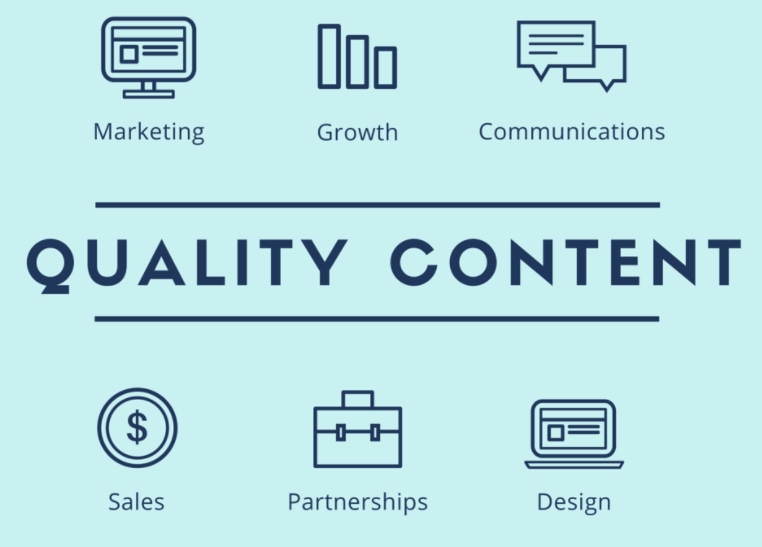
“It’s enough if I just slap over a few hundred words”: If that’s your content marketing strategy , you should reorient yourself as soon as possible! A good starting point is your own Google search behavior – would you read a post that contains a lot of empty blah and maybe even outdated information? Either way, you have to do better than the competition on your side . What you want is evergreen content : content that will be well received over the long term and that has been created with great attention to detail.
Content is only of high quality if it provide correct information (don’t forget reputable sources!)
are complete or contain meaningful internal links to relevant articles are current one for the search reasonable length have completely cover the search intention , ie providing maximum benefit.
2. Content design
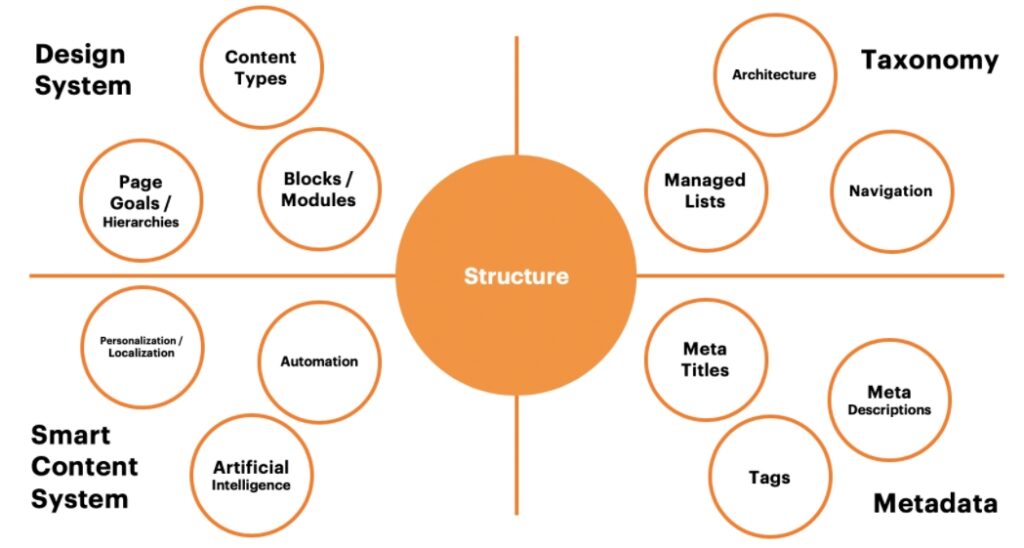
The best content is only half as good if it is prepared carelessly. In practice, this means that you ensure a good flow of reading by
- Write short, precise sentences and correct mistakes
- Pay more attention to understandability
- Don’t let paragraphs get too long
- visually loosen up the text with graphics, tables, lists, videos, etc.
Be really strict with your own work here! If it is too difficult for you to proofread your text again or to optimize it visually – what reason should your readership have to spend a long time looking at the article?
3. Authority
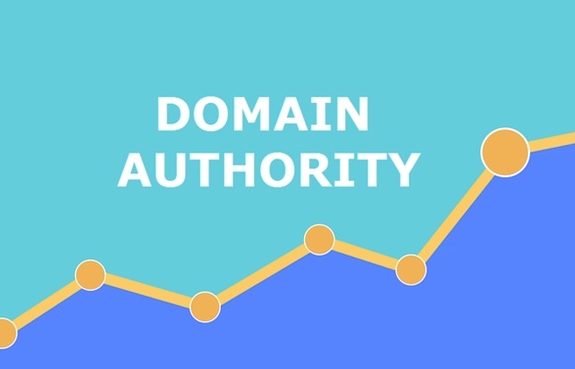
For good rankings, it is important that Google classifies your site as trustworthy and recommendable . Behind this is the update called Google EAT (Expertise – Authority – Trustworthiness).
what does authority mean in relation to search engine optimization?
First and foremost, it means that you have to take care of your backlink profile. Backlinks are , so to speak, recommendations that other sites give you . “Quality over quantity” is the motto, because even if you naturally want to get as many links as possible – backlinks from untrustworthy sites will do you more harm than good!
And if you are now wondering whether you can simply buy these links or otherwise sneak them: Of course you can . But it does not make sense, because Google has still discovered cheating sooner or later . And penalties are the last thing you want to achieve!
Expert tip:
Buying backlinks is like quicksand, once you start you won’t get out and at some point it will all come to an end. Link building is a tedious process. When you start taking shortcuts, you will not acquire any skills in these areas and you will become addicted to simple, risky solutions. Link buying should only be done if you otherwise have almost no chance of getting backlinks.
4. Basic technical requirements
Let’s not kid ourselves: if the technical substructure is not right, frustration is inevitable. The good news, however, is that you can change a lot of small things with comparatively little effort. For technical SEO include, for example
- Short loading times (e.g. through optimized image sizes) – you can check this via Google’s PageSpeed Insights .Optimization for mobile devices ( Mobile First )
- Increased security through the HTTPS certificate
- The Core Web Vitals
- Talking URLs instead of automatically generated, meaningless addresses
You can find a lot more information in our guide to OnPage optimization .
Search Engine Optimization (SEO) in Practice
How can I optimize my website with Search Engine Optimization?
So there it is, the theoretical foundation (SEO basics) – but how do you put it all into practice now? As a new search engine optimizer, what do you have to do to optimize your website for Google ? Here you will find an overview of the most important steps and links to the appropriate guides for more details!
Step 1: Keyword Research

Without search terms, nothing works at search engine optimization or at Google in general. Accordingly, detailed keyword research is the most important basis of your SEO campaign. Here you divide which pages should rank for which keywords and differentiate between commercial and informative keywords (and more) – more on this in the next point.
Step 2: Analysis of the search intention
It’s actually very simple: you want to give people exactly what they are looking for. So you have to be able to correctly assess the keywords from your research. Commercial keywords such as “buy wooden bed” have an obvious purchase intention, which means that you are well advised to have a shop category page here.
And the so-called informational keywords ? You should definitely not give it away! For example, those looking for “care for wooden furniture” do not primarily want to buy something. But if you create an advice page for such keywords , you will also gain attention for non-commercial topics . And should the person be ready to buy, ideally they have your shop in the back of their minds
This is a very banal example, but what we mean by that: For each keyword, think twice and three times what users expect from the search query . The easiest way to do this is to create buyer personas . With the Hubspot tool ” Make My Persona ” this is done quickly, and you have an idea of who the specific individuals from your target group.
Step 3: plan the page structure
In theory, it’s (again) very simple: The easiest way for users and the Googlebot , Google’s web crawler, to find their way around is if you manage to create a clear, tidy structure . Ideally, of course, this happens right from the start so that you don’t have to set up redirects afterwards and laboriously rebuild everything.
As soon as you have your keyword lists ready and the search intention firmly in view, it is time to plan the page structure . (You can visualize your structure with tools like Flowmapp or Bubbl.us .) That means: If you run an online shop , for example , you determine in this step which category and product pages you will use to cover which keywords.
Step 4: Write and optimize SEO texts
Not every subpage needs a lot of text – but most of them do! Accordingly, you should plan a lot of time for text work . Simply stuffing a few lines with the keyword will do you more harm than good. Or would you want to read such texts yourself?
Your content should be keyword-optimized and at the same time offer informative added value . If you want to write a good SEO text , you have to consider the search intention down to the smallest detail one more time. In the harsh reality that means: no matter how enthusiastic you are about your offer – “read dull advertising language” is never a search intention. So be sure to use keyword tools like Ahrefs or SEMrush to see what they’re really looking for.
Step 5: Optimize Google Snippet
It is the showcase for your contribution: the Google Snippet ! Consisting of title tag and meta description , it conveys at a glance what the page is about. The snippet is your great chance to gain clicks and, last but not least, to offer Google an orientation. Because we can reveal this much right away: The automatically generated snippets are anything but exciting.
So DIY is clearly the better solution in this case. For example, make sure that the title always contains your main keyword in addition to the meta description , and think about short, crisp formulations . These should be worded as appealingly as possible – only then will you arouse interest!
Yes, snippets are handicraft work and there is no guarantee that Google will actually display your title or meta description in this way. But one thing is certain: Snippet optimization pays off – it’s best to convince yourself with our video!
Step 6: publish content
Happy with your content? Then get him out there with the right planning! In any case, create an editorial plan in which you determine when which article should go online. Believe us: the older your website is and the more content it gets, the more important this overview becomes.
With your editorial plan, on the one hand you avoid duplicating topics and on the other hand you keep track of which keywords you have already covered . Also, take a look at the old posts from time to time – maybe some already published content pieces can use an update in terms of content!
Try to publish new content regularly . Quality comes before quantity, however! Over time, you should then monitor which content is performing best . In technical jargon, this is called a content audit – you can see how it’s done in the video!
Expert tips:
If you want to implement search engine optimization yourself, you need logical thinking and a lot of empathy . You have to be able to assess what real people want to see – do not rely on marketing utopias or imaginary dream customers! Do n’t just focus on commercial keywords , as these search terms will only reach a fraction of your target audience.
How Long Does Google Search Engine Optimization (SEO) Take?
When will I see the first search engine optimization results?
Jumped straight to the front from now on? This is unfortunately not how the optimization for Google search works. Be aware that with good SEO, it will take you some time to see real results . Here is an overview of the time periods you should expect:
You should also know that the size of the project matters. In the case of already established sites that have already set up a backlink profile, it usually takes about 3-6 months for the first results. A completely new page, on the other hand , first has to prove itself, because it has no “history” that Google could fall back on. You have to be patient in such a case for around 9-12 months .
And don’t forget: Search engine optimization is not a one-time job , but an ongoing process. Stay tuned is the motto – otherwise you will slide back to the lower ranks. How so? The competition never sleeps.
Implement SEO optimization yourself or with an SEO agency?
Can I do search engine optimization myself?
You can do it yourself or you can hire SEO Expert : The tiresome question also arises when it comes to search engine optimization. Ultimately, only you can answer them yourself, but we can at least give you a decision-making aid in the form of a cost analysis . If you decide to work with professionals, we have also put together a few tips on how you can distinguish serious agencies from charlatans !
What does SEO cost and is SEO optimization also available for free?
Well-done, efficient Google optimization necessarily takes many hours of work. So it is only logical that the work of a good SEO agency cannot be dirt cheap . If your budget is around 200-300 euros, unfortunately we have to say: That is never enough in life What are you thinking now? Well, just look at the average hourly effort for common SEO measures:
| TASK | HOURLY EFFORT |
|---|---|
| Research and write the text for a detailed landing page | 6-8 h |
| Enter text on the website, link internally, research images, content design, | 1-2 h |
| Research 30 contacts for guest article inquiries, find topics, write to webmasters, . | 10-14 h |
| 2 Write guest articles to build backlinks | 8-10 h |
Let’s assume that all of these tasks are actually done as quickly as possible. Then we are already at 25 hours of work. If a really cheap , fictitious service provider calculates an hourly rate of 60-100 euros, this already results in net costs of almost 1,500-2,500 euros per month for the tasks mentioned above .
Attention: This price does not include keyword research, ongoing monitoring of progress , technical measures, etc. The costs that the agency incurs due to the necessary tools are also not taken into account – and without tools you are flying blind.
So if someone offers you a cheap “full package” or a negligible monthly cost , then you are either very bad business people or the agency is not doing its job properly . So and so you will waste your budget in this way and in the worst case you will end up with Google penalties . (Believe us: we’ve already seen a lot!)
Precisely because we know that clean work is the be-all and end-all, our monthly SEO support starts at 3,000 euros. Individual packages such as keyword analysis including site structure planning start at 1,800 euros. With us, the costs result from the following factors, among others :
- Competition – How competitive are the keywords?
- Goals – How quickly should certain goals be achieved?
- Niche – Will it be difficult to get backlinks in this niche?
On this basis, we calculate our estimated hourly effort and prepare a concrete offer. If it is a simple niche or local SEO , we offer unique SEO packages , for example:
- Link building package
- Creation of a concept or strategy for the restart
- Keyword research including site structure planning
- Local SEO complete package
- SEO check so you know what needs to be done on your website
- Tailor-made SEO texts
It almost goes without saying, but to answer the initial question: There is no such thing as “free” SEO optimization . Optimization for search engines is free of charge if you lend a hand in all areas and do not count the time you need for further training and implementation as working time. And that doesn’t make sense from an entrepreneurial point of view, Keep Visiting hassanbilal.net, Hassan Bilal will update you with Modern SEO updates
